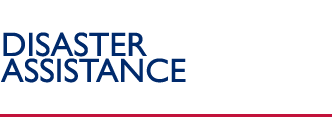How Can I Help?
Some Questions to Consider
When deciding which humanitarian organization to support with a donation, there are several issues to keep in mind. The idea is to ensure that the organization you support has the capacity and experience to effectively and efficiently provide assistance to the affected people. Some questions to consider are:
- Can the organization describe exactly what they are doing to provide relief, and how they are doing it? The organization's mission and its programs in the affected area should be clearly defined, based on a thorough understanding of the needs in the region, and well coordinated with other relief organizations. Be cautious of overly emotional pleas for support, and general or vague statements about the organization's operations.
- Does the organization have experience in the affected region and/or with this type of disaster? Disaster relief is a very complex undertaking. Inexperienced organizations can actually complicate relief efforts, rather than alleviate suffering. Be especially wary of very new organizations, with little or no history in providing disaster assistance.
- Is the organization undertaking programs that you would like to support? Many donors have a specific need in mind that they would like their donation to meet. If that's the case, be sure to ascertain whether the organization to which you donate will be addressing your interests, and verify that it has a successful track record in providing this type of assistance.
- Does the organization have readily available information about its programs and finances? Consider asking for the most recent annual report and audited financial statement.
- What share of a donation goes toward programs, versus administrative and fundraising costs? Be cautious of too little, or too much, of your donation going toward direct assistance. See more on this here.
- What are the organization's plans for donated funds that are left over after it has fully funded its relief activities? Don't assume that all of the funds donated can or will be used for a particular disaster - the organization should have the capacity to use all of the donations it receives effectively, or it should stop accepting donations for a disaster once it has reached that point.
- Will your donation be tax-deductible? See more on this here.
There are many resources available to address the issues above. The organization's own website or telephone operators may be able to provide answers. And keep in mind that an organization with nothing to hide will not mind your questions. Of course, you should always consider double-checking information using other sources. Here are some suggestions:
Some humanitarian organizations agree to abide by certain standards in their operations. Examples include InterAction's Private Voluntary Organization Standards, and the Charity Standards created by the Better Business Bureau's Wise Giving Alliance.
Finally, remember that the vast majority of overseas disasters receive very little media attention. So, you might also want to think about donating to a less-known cause. Once you have found an organization with which you are comfortable, consider supporting their other activities around the globe.
For more information on selecting an organization to support, see the following guides:
Back to Top ^
|


